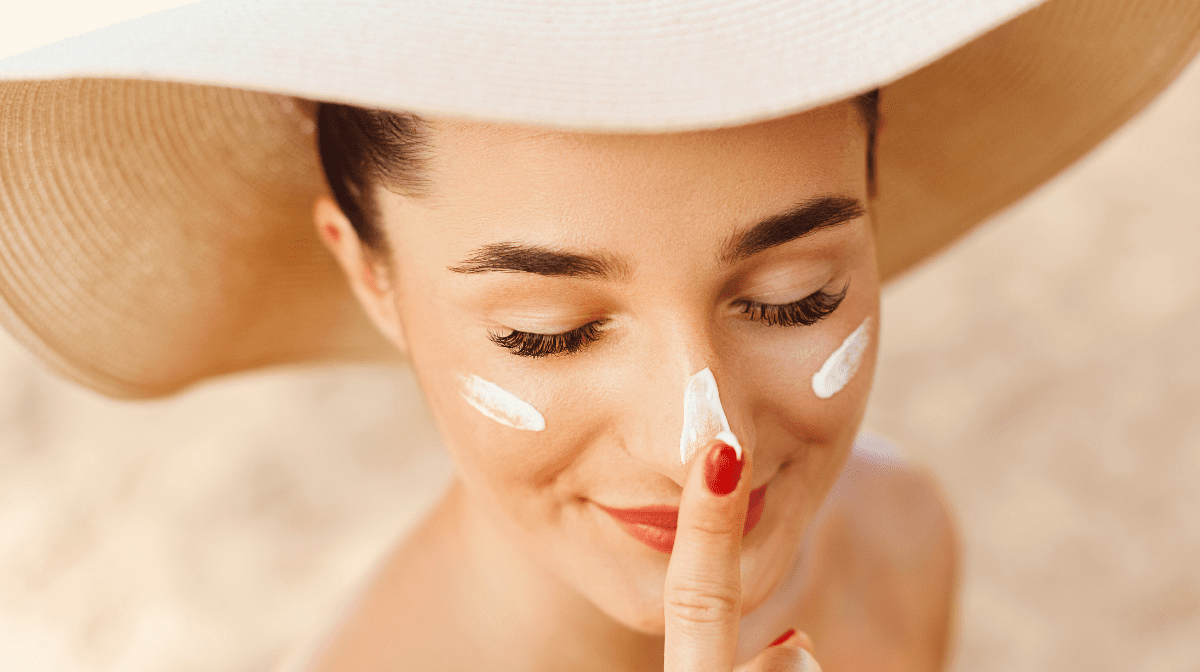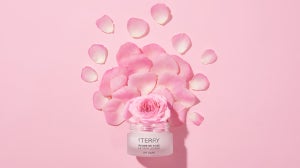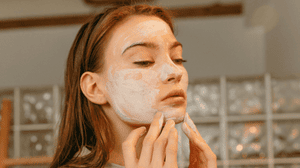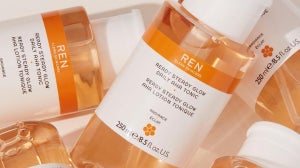
Irrespective of the weather, sunscreen should be implemented into everyone's daily skincare routine, as it offers some protection against skin damage caused by the sun’s harmful UV rays.
If you’re looking to find the best sunscreen for the face, it’s important that you understand the different types of sunscreens and select the right formula for your skin type. Explore our expert guide to find out which one could suit your needs.
What are the Different Types of Sunscreen?
There isn’t a one size fits all solution when it comes to sun cream - especially when wearing it every day. We recommend finding a formula that works harmoniously with your skin type to Make sure it slots seamlessly into your existing skincare and makeup routine.
There are three main types of sunscreens available on the market: chemical, physical (mineral), and combination sunscreens.
Chemical Sunscreens
The most common formula, chemical sunscreens are formulated to absorb UV rays and convert them into heat, which is then released from the skin.
Chemical sunscreens are a popular option, often preferred for their lightweight texture, ease of application and the fact they don’t leave a film on the skin.
Note: These SPFs require twenty minutes on the skin before they come into effect.
Mineral Sunscreens
Mineral sunscreen, also known as ‘sunblock’, is formulated to create a physical barrier on the skin that helps to reflect UV rays.
The active ingredients, such as zinc oxide and titanium dioxide, provide broad-spectrum protection against both UVA and UVB rays. This could be beneficial for sensitive or fair skin types that may require stronger protection to avoid exacerbating their skin concerns.
Common Myths About Sunscreen: Debunked
Now, let's address some prevalent myths surrounding sunscreen and shed light on the truth behind them:
1. You Don't Need Sunscreen on Cloudy Days
Up to 80% of UV rays can penetrate clouds and cause skin damage, so it’s important to wear sunscreen even on overcast days to help protect your skin.
2. Darker Skin Tones Don't Need Sunscreen
Regardless of skin tone, everyone is at risk of UV damage, so it’s important to incorporate sunscreen into your skincare routine to help prevent this.
3. SPF is Waterproof
While some formulas can be ‘water-resistant’ it’s unlikely that any sunscreen can withstand sweat and water.
For this reason, we recommend reapplying at least every two hours throughout the day and topping up after spending time in water.
4. SPF Protects the Skin Immediately After Application
When applying chemical sunscreen, you should leave around 20 minutes after application to give it time to be absorbed. However, always check your chosen product for more direction on when and how to apply it.
How to Choose Sunscreen for Face
When choosing the best sunscreen for your face, there are a number of things you need to take into consideration.
First, you’ll want to make sure it’s suitable for your skin type, then you need to pick one that will fit seamlessly into your beauty routine - whether you prefer to keep it simple with just a few skincare products or you never leave the house without makeup.
Which Sunscreen is Best for Oily Skin?
If you’ve got oily skin, opt for a lightweight, oil-free formula such as a gel or spray, as these products are more easily absorbed to avoid adding any excess shine to your complexion.
It may also be effective to choose non-comedogenic formulas, to reduce the risk of clogging pores and exacerbating breakouts.
Which Sunscreen is Best for Dry Skin?
If you’re looking for a sunscreen for dry skin, we recommend choosing a formula with hydrating ingredients like hyaluronic acid or glycerin that could help your skin to retain moisture, which could be especially useful in warmer weather.
Which Sunscreen is Best for Sensitive Skin?
When it comes to finding a sunscreen for sensitive skin, there are plenty of options available. We recommend looking for a fragrance-free, hypoallergenic formula that has been specifically formulated for sensitive skin.
Mineral sunscreens are a popular choice among those with reactive skin, as they are often fairly well tolerated.
Note: Consider testing the product on a small area of skin at least 24 hours before a full application.
Which Sunscreen is Best for Combination Skin?
When looking for a sunscreen for combination skin, opt for a sunscreen with a gel or water base, as these are less likely to exacerbate oily areas. Additionally, moisturising ingredients can help with any dryness.
Sunscreen is a crucial aspect of skincare that plays an important role in helping to safeguard the skin from harmful UV rays.
Now you’ve decided which SPF is right for you, discover some other summer beauty essentials to pack in your makeup bag.








